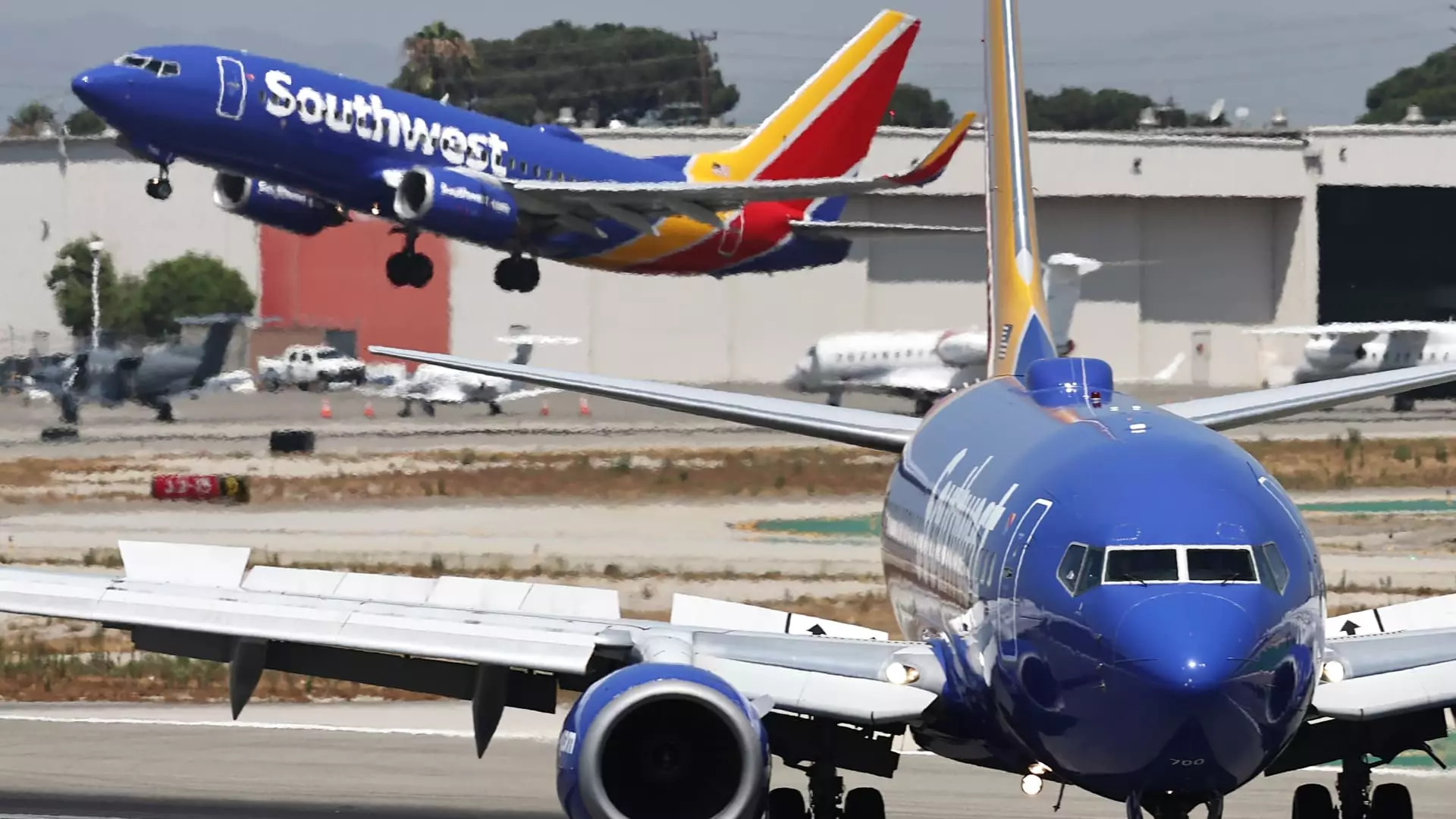Dallas-based Southwest Airlines has recently updated its revenue outlook for the third quarter, announcing an estimate that exceeds previous expectations. The airline predicts a 3% increase in unit revenue compared to the previous year, reversing an earlier forecast that suggested a potential decline of up to 2%. This upward revision can be attributed to a series of strategic operational changes, including the reallocation of passengers previously booked on other carriers impacted by operational setbacks, such as the CrowdStrike outage in July. This agility highlights Southwest’s commitment to maintaining a competitive edge in a challenging transportation landscape.
In conjunction with its adjusted revenue expectations, Southwest’s board has authorized a significant $2.5 billion share buyback program. This decision is indicative of the company’s optimism regarding its financial health and growth trajectory, aimed at appeasing shareholders amidst pressures from activist investors like Elliott Investment Management. The buyback signal emphasizes a focus on shareholder value while attempting to stabilize stock performance in light of fluctuating market conditions that airlines have faced this year.
In a bid to strengthen its governance, Southwest announced the appointment of Bob Fornaro to its board of directors. Fornaro’s extensive background in the airline industry, including his tenure as CEO of Spirit Airlines and his previous role with AirTran, positions him as a seasoned addition well-acquainted with the operational intricacies of Southwest. His presence on the board is anticipated to bring valuable insights as the airline navigates its next phase of evolution, particularly with impending changes spurred by pressures to innovate from Elliott Investment Management.
Adapting the Business Model
As part of its adaptive strategy, Southwest unveiled adjustments to its traditional business model, which has been in place for over 50 years. These changes include the introduction of assigned seating and extra-legroom options, aimed at generating additional revenue streams. While many airline competitors have turned to ancillary fees as a primary revenue source, Southwest has held steadfast to its unique selling proposition of offering free checked baggage, believing that customer satisfaction and market share growth outweigh the potential losses from bag fees.
The Outlook on Operational Reductions
Despite positive financial developments, the airline announced operational cutbacks, specifically in Atlanta, where it plans to reduce service and potentially lay off over 300 flight attendants and pilots. This bold move highlights the dual pressures Southwest faces: the need to trim costs while enhancing profitability. The announcement comes amid broader discussions regarding leadership changes, with Elliott continuing to push for a shift in top management to align with its vision for the airline’s future.
As Southwest Airlines strives to solidify its market position amid evolving industry demands, the balance of embracing innovative strategies while maintaining its core values will be critical. The ongoing scrutiny and pressure from activist investors necessitate that the airline not only adapts its corporate strategy but also demonstrates that it can achieve sustainable growth without compromising what has historically set it apart in a competitive sector. The forthcoming discussions and decisions in the upcoming months will be pivotal for the airline’s continued success and resilience.


Leave a Reply